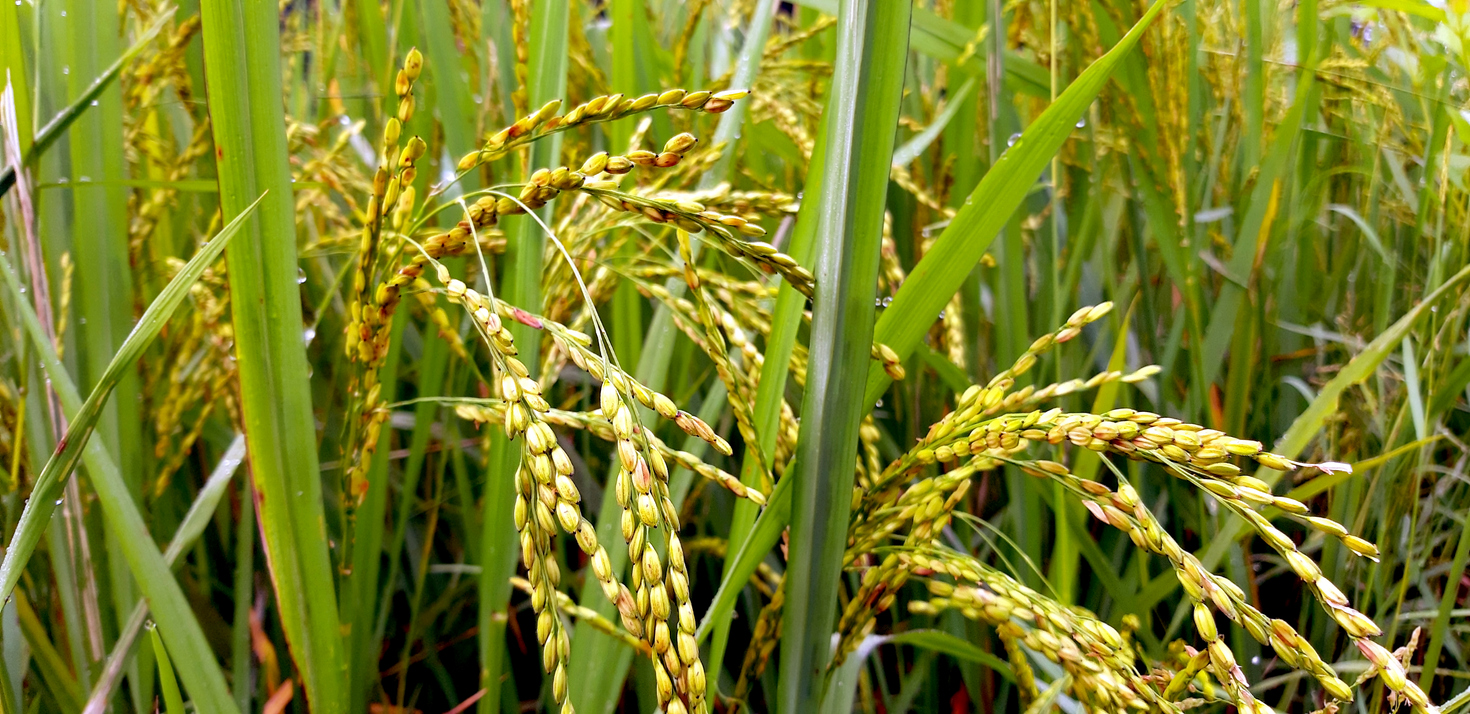
Gene-edited Rice Provides Insights into Abiotic Stress Resistance
May 7, 2025| |
Hankyong National University scientists from South Korea investigated the role of rice genes and revealed their roles in abiotic stress tolerance. Their findings are published in Genes.
The glyceraldehyde-3-phosphate dehydrogenase (GAPDH) enzyme plays a crucial role in glycolysis as well as in various physiological and stress response pathways. Thus, the researchers looked at the genes OsGAPDHC1 and OsGAPDHC6 in rice seedlings exposed to different stress conditions such as drought, salt, heat, and cold.
The researchers observed that when rice seedlings were treated with stress hormone abscisic acid, both genes became more active in the first 6 hours, but then the activity dropped for OsGAPDHC6 after 12 hours. Using CRISPR-Cas9 gene editing, the researchers generated rice plants with a non-functional OsGAPDHC6 gene (knockout lines). These knockout plants showed differences in seed size (length, width, thickness) compared to the wild-type. The knockout plants also had poorer germination, lower ability to grow, and a lower germination rate under salt stress. Furthermore, the knockout lines had lower activity of other stress-related genes compared to wild-type rice.
Based on the findings, it was concluded that OsGAPDHC6 is vital in developing the resistance of rice to salt stress, especially in the early stages of growth, from seed sprouting until just before the plants start to tiller.
Read more in Genes.
| |
You might also like:
- Plant Breeding Innovation: CRISPR-Cas9
- The First Decade of CRISPR: Advances and Outlook
- CRISPR Gene Editing Gets a Boost in Efficiency
Biotech Updates is a weekly newsletter of ISAAA, a not-for-profit organization. It is distributed for free to over 22,000 subscribers worldwide to inform them about the key developments in biosciences, especially in biotechnology. Your support will help us in our mission to feed the world with knowledge. You can help by donating as little as $10.
-
See more articles:
-
Plant
- Gene-edited Rice Provides Insights into Abiotic Stress Resistance
- [IMPORTANT UPDATE] Save the Date: 8th Asian Short Course on Agribiotechnology, Biosafety Regulation, and Communication
- India Releases Two Genome-Edited Rice Varieties
- UC Davis Develops Wheat with Reduced Gluten Proteins
-
Animal
- Researchers Use Salmon DNA to Develop Cold-Tolerant Tilapia
- Gene-Edited PRRS-Resistant Pigs Get US FDA Approval
-
Food
- 27 EU Agri-food Value Chain Partners Sign Joint Position Paper on NGT Traceability and Labelling
-
Environment
- Experts from UC San Diego Push Genetically Enhanced Crops for Carbon Dioxide Removal
-
Read the latest: - Biotech Updates (February 11, 2026)
- Gene Editing Supplement (January 28, 2026)
- Gene Drive Supplement (February 22, 2023)
-
Subscribe to BU: - Share
- Tweet

